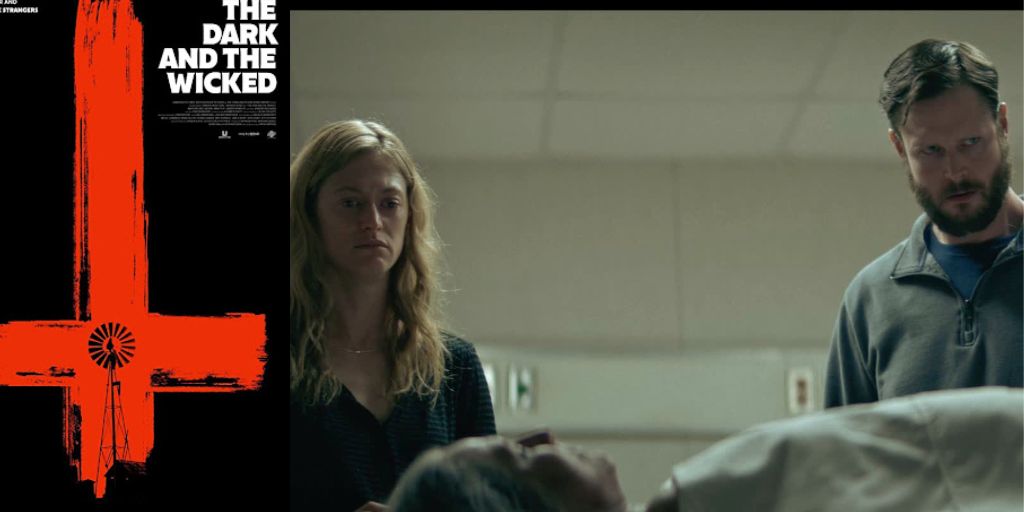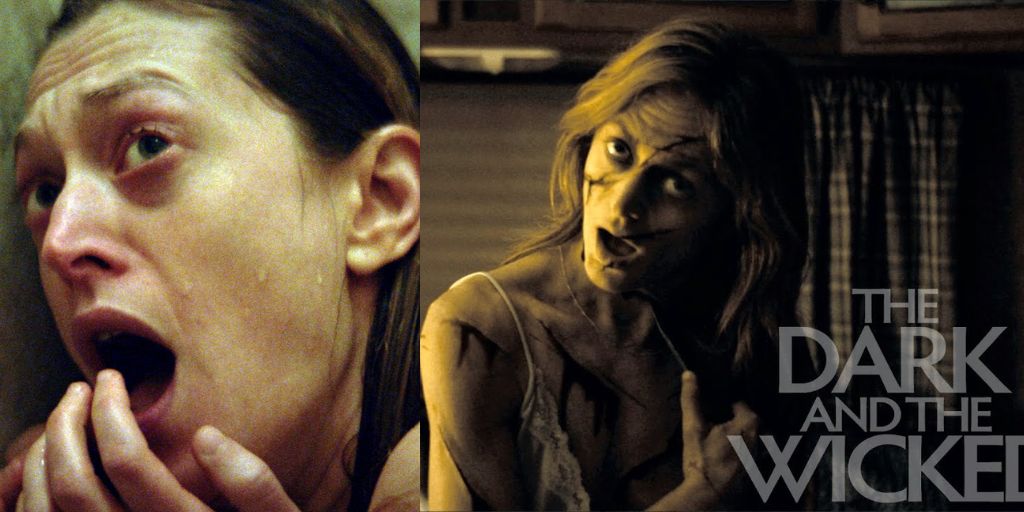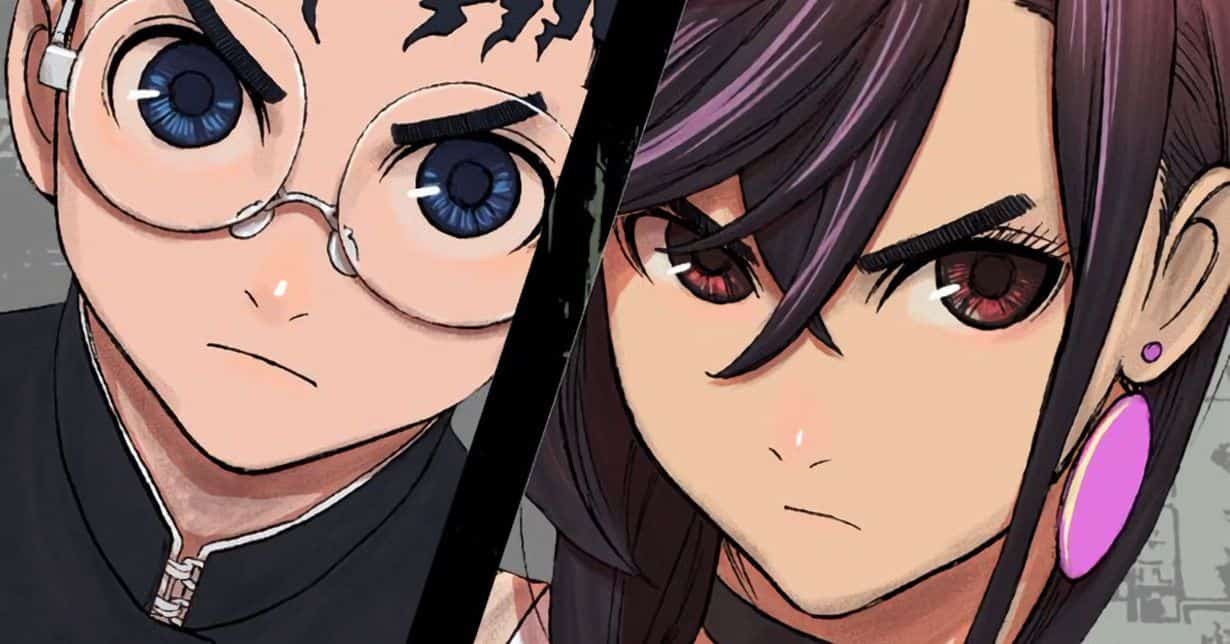In 2008, director Bryan Bertino scared audiences with his cult classic The Strangers, a home invasion thriller where the attackers inflicted harm just for the thrill. The film’s unsettling atmosphere made us wary of every shadow.
Bertino’s later film, The Dark and The Wicked (2020) uses a similar sense of dread but takes a supernatural and bleak approach. Drawing from his experience in building tension, Bertino uses it to highlight the film’s familial drama, showing how grief, guilt, and trauma manifest as evil.
The story unfolds on an isolated Texas farm where siblings Louise (Marin Ireland) and Michael (Michael Abbot Jr.) return to care for their bedridden father (Michael Zagst) and their troubled mother (Julie Oliver-Touchstone).
Their initial scenes of drinking beer and reflecting on their past guilt set a somber tone. However, the quiet atmosphere shifts dramatically when their mother gruesomely injures herself and ends her life.
The siblings are left to deal with the unexpected loss and help care for their father, only to be plagued by disturbing hallucinations. Louise begins to notice strange occurrences, while Michael remains in denial, even after finding their mother’s diary, which mentions a spirit she calls “the devil.”
The supernatural events affect everyone who comes into contact with them, creating a pervasive sense of evil. The real horror, though, lies in the complex relationship between Louise and Michael.
Their interactions, shaped by their shared grief and guilt, become central to the film. Their different ways of handling trauma—Louise’s dedication to their mother’s wishes and Michael’s focus on farm work—highlight their strained bond.

The siblings’ approach to their mother’s death reflects their handling of the supernatural elements. In a conversation with a priest (Xander Berkeley), they discuss their mother’s newfound religious interest, which she lacked in their youth.
The priest explains that evil spirits don’t care about beliefs; they cause chaos regardless. This can be seen as a metaphor for their unresolved family trauma, which manifests through the demon’s actions, including suicide.
This cycle of pain spreads to others, such as Charlie (Tom Nowicki) and the nurse (Lynn Andrews), showing how unaddressed trauma infects those around them. Charlie’s death, where he hallucinates Louise’s self-harming, exemplifies this ongoing cycle of pain.
Bertino’s direction skillfully blends the family drama with horror elements. Echoing The Strangers, the film uses a simple yet effective approach to scare. Bertino prefers slow-burn horror, allowing tension to build gradually.
Like the stationary camera on the priest’s sinister smile, scenes with dark figures and unsettling moments reflect the growing tension between Louise and Michael. His pacing, sound, and minimal jump scares create a tense atmosphere that mirrors the siblings’ psychological strain.
The film’s effectiveness also hinges on the performances of Ireland and Abbot Jr. portrays Michael as emotionally detached and physically distanced from the farm, reflecting his desire to escape the situation.
Ireland, on the other hand, delivers a powerful performance as Louise, showing exhaustion and terror with great intensity. Her portrayal of a hallucination of Charlie highlights her skill in depicting the film’s trauma-driven horror.
The Dark and The Wicked is more than just a supernatural horror film; it’s a deep, unsettling exploration of family trauma and how unresolved emotions can manifest as something far more terrifying. Bertino’s masterful direction, coupled with the nuanced performances of Ireland and Abbot Jr., transforms what could have been a typical “devil-haunts-a-family” story into a poignant and horrifying portrayal of grief, guilt, and the inescapable nature of familial bonds.
The film lingers with you long after the credits roll, not just for its scares, but for its haunting reflection on the darker sides of human relationships.





